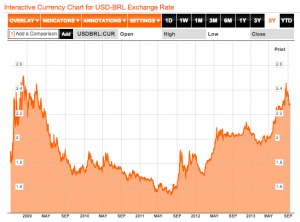The FBI’s Improving Cooperation with FSB
There were a number of questions about security threats to the Sochi Olympics at the Global Threat hearing the other day. One of them provided Jim Comey the opportunity to say this:
National Counterterrorism Center Director Matthew Olsen: So we’re very focused on the problem of terrorism in the run-up to the Olympics. I would add that I traveled to Sochi last December and met with Russian security officials. They understand the threat; they are very focused on this and devoting substantial resources. The biggest issue, from my perspective, is not the games themselves, the venues themselves; there is extensive security at those locations — the sites of the events. The greater threat is to softer targets in the greater Sochi area and in the outskirts, beyond Sochi, where there is a substantial potential for a terrorist attack.
Dianne Feinstein: Thank you very much. Mr. Comey, would you tell us what you can about cooperation between Russia and your organization?
FBI Director Jim Comey: Certainly, Senator. The cooperation between the FSB and the FBI in particular has been steadily improving over the last year. We’ve had exchanges at all levels, particularly in connection with Sochi, including me directly to my counterpart at FSB, and I think that we have a good level of cooperation there. It can always improve; we’re looking for ways to improve it, as are they, but this, as Director Olsen said, remains a big focus of the FBI. [my emphasis]
In the middle of a hearing at which James Clapper railed against Edward Snowden, claiming that counterintelligence threats — by which he largely meant Snowden — presented the second biggest threat to the country, the FBI Director stated that cooperation between his agency and the Russian spy agency has been improving for the last year (I’m guessing he means it has been improving since the Boston attack, because relations were quite chilly before that).
Snowden’s the second biggest threat to this country, and yet our relations with Russia, and specifically with Russia’s spy agency, have been steadily improving over the entire period Snowden has had asylum in Russia.
I don’t pretend to know precisely what that means.
At a minimum, it poses real questions about the unsubstantiated and whispered claims that Snowden has provided Russia great intelligence on NSA’s activities. After all, if Russia was busy exploiting Snowden’s secrets, it presumably would present challenges for this budding new cooperation between the FSB and those investigating Snowden’s leaks.
(The Global Threats report actually raises the case of Jeffrey Paul Delisle, a Canadian intelligence officer who gave Russia Five Eyes secrets for five years, as proof the Russians are soliciting more spies as part of its cyberwar efforts.)
There is, of course, another (remote) possibility: that we worked out a deal with Russia, whereby they’d give Snowden asylum and report back what he had taken. I have no reason to believe Snowden has shared secrets (though don’t doubt Putin will take whatever he can get his hands on), and the thought that Russia would agree to tell us what Snowden got is far-fetched. Still, Putin’s enough of a statist he might do it (and might misinform us along the way). While far-fetched, if that were the case, though, it’d give the US several things: the security in knowing Snowden was in the hands of security forces who would prevent any non-state or weaker states from getting to him, who were also limiting what Snowden could say publicly. Some clue about what Snowden had taken. And a political situation which would help US efforts to propagndize against Snowden.
Alternately, one of the things the FBI has learned as it has worked more closely with the FSB is that Snowden hasn’t shared any secrets with Russia (perhaps, as many have suggested, Russia got enough from Delisle that they would rather use Snowden solely to discomfit us).
I don’t know what it means. But I do find it rather implausible that the FBI would continue to expand cooperation with the FSB even as it extracted NSA’s family jewels from Snowden. Yet that’s the story Snowden’s biggest detractors would like you to believe.

